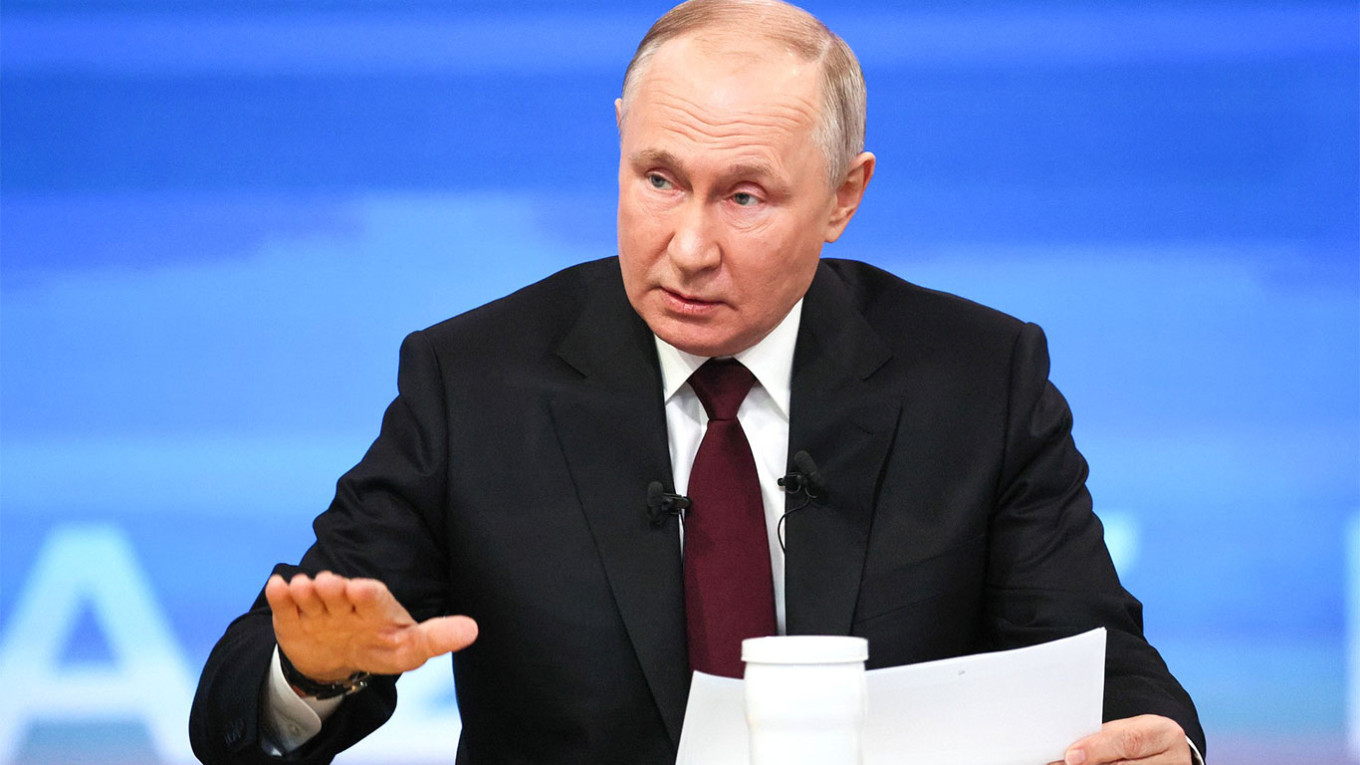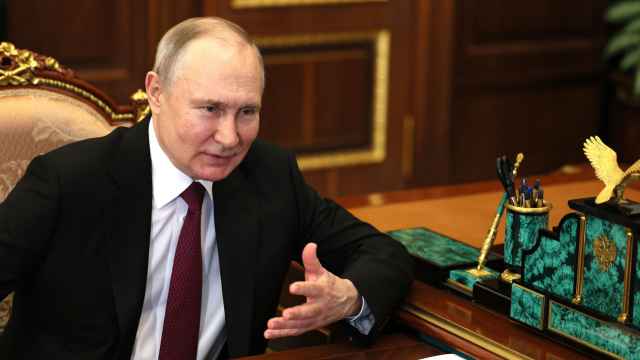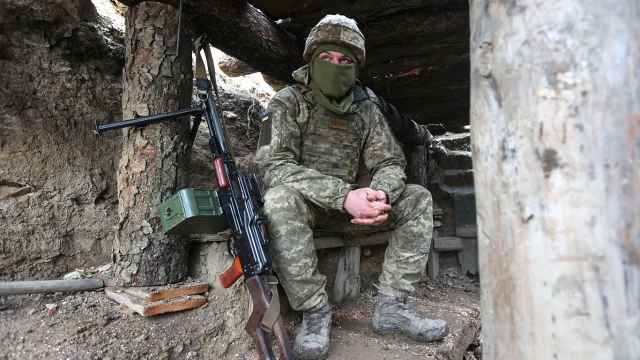Russian President Vladimir Putin said Thursday that Moscow was in “difficult” talks with Washington about a prisoner swap involving WSJ reporter Evan Gershkovich and jailed ex-Marine Paul Whelan.
“There are contacts on this issue and dialogue is ongoing, but it's not straightforward,” Putin said.
“I hope that we will find a solution. But, I repeat, the American side must hear us and make an appropriate decision. One that suits the Russian side as well,” Putin said, responding to New York Times journalist Valerie Hopkins.
Putin disputed Hopkins' characterization of Gershkovich’s detention “without trial and investigation,” and poses a question of his own: “Why don’t they [Western journalists] stop committing offenses on Russian territory?”
The U.S. State Department responded by saying Russia so far has refused all U.S. offers for the release of Gershkovich and Whelan and calling on Putin to negotiate in good faith.
"There is one significant offer that we made as recently as a few weeks ago," State Department spokesman Matthew Miller told reporters, adding that offers had been "rejected every time" by Russia.
Miller said the United States "would welcome them negotiating in good faith. We would welcome them engaging seriously with us."
On Thursday, a Moscow court upheld a ruling to hold Gershkovich, arrested in Russia earlier this year on espionage charges, in detention until Jan. 30.
The 32-year-old Wall Street Journal correspondent in Moscow, his employer and the U.S. government have all rejected the spying allegations.
Whelan was accused of spying after agents from Russia's Federal Security Service (FSB) detained him in a Moscow hotel room on in December 2018.
He was sentenced to 16 years in prison on espionage charges in 2020, and the U.S. has designated him “wrongfully detained.”
AFP contributed reporting.
A Message from The Moscow Times:
Dear readers,
We are facing unprecedented challenges. Russia's Prosecutor General's Office has designated The Moscow Times as an "undesirable" organization, criminalizing our work and putting our staff at risk of prosecution. This follows our earlier unjust labeling as a "foreign agent."
These actions are direct attempts to silence independent journalism in Russia. The authorities claim our work "discredits the decisions of the Russian leadership." We see things differently: we strive to provide accurate, unbiased reporting on Russia.
We, the journalists of The Moscow Times, refuse to be silenced. But to continue our work, we need your help.
Your support, no matter how small, makes a world of difference. If you can, please support us monthly starting from just $2. It's quick to set up, and every contribution makes a significant impact.
By supporting The Moscow Times, you're defending open, independent journalism in the face of repression. Thank you for standing with us.
Remind me later.






